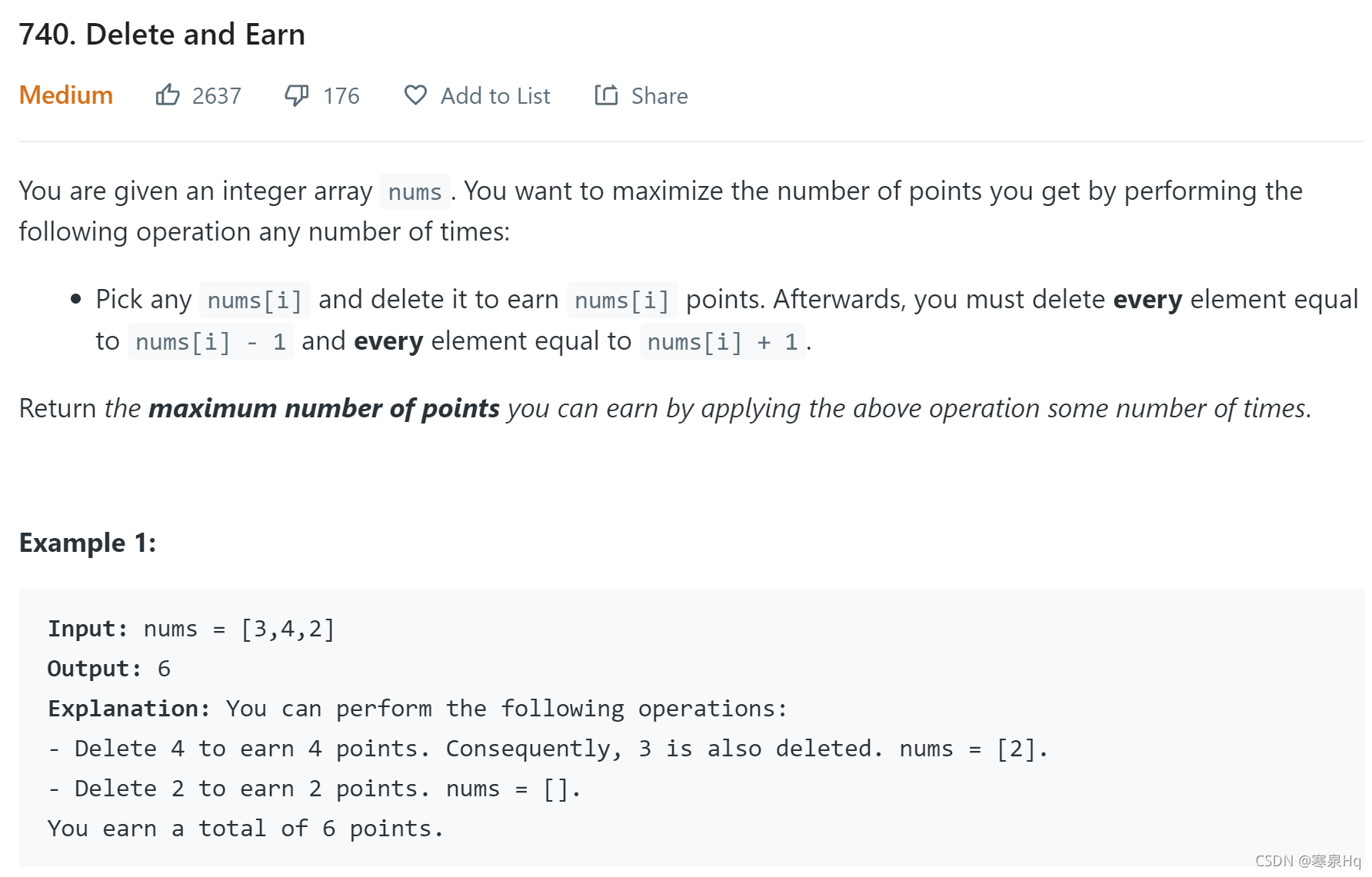本文主要是介绍leetcode 740. Delete and Earn | 740. 删除并获得点数(暴力递归->傻缓存->DP),希望对大家解决编程问题提供一定的参考价值,需要的开发者们随着小编来一起学习吧!
题目
https://leetcode.com/problems/delete-and-earn/

题解
建立 help 数组,相当于一个(正向)索引表。
先排序,因为删除的顺序不影响最优结果(实际上是影响结果的,只不过最优解一定是从小到大删除的,因为如果先删除中间的元素的话,它的两边可能被误伤,而如果从边缘开始删除的话,只能误伤到一侧。)
class Solution {public int deleteAndEarn(int[] nums) {Map<Integer, Integer> map = new HashMap<>();for (int n : nums) {int count = map.getOrDefault(n, 0);map.put(n, count + 1);}int[][] help = new int[map.keySet().size()][2];int p = 0;for (int k : map.keySet()) {help[p][0] = k;help[p++][1] = map.get(k);}// 删除顺序不影响结果(至少从小到大删除结果不会更差),所以先排序Arrays.sort(help, Comparator.comparingInt(o -> o[0]));// Approach 2: Recursion with Memoization
// return process(help, 0, dp);// Approach 3: Dynamic Programmingint[] dp = new int[help.length + 2];Arrays.fill(dp, -1);dp[help.length] = 0;dp[help.length + 1] = 0;for (int i = help.length - 1; i >= 0; i--) {int step = (i + 1 < help.length && help[i][0] + 1 == help[i + 1][0]) ? 2 : 1;dp[i] = Math.max(dp[i + 1], dp[i + step] + help[i][0] * help[i][1]);}return dp[0];}// 在当前i位置,删或不删,能够获得的最大收益
// public int process(int[][] help, int i, int[] dp) {
// if (i >= help.length) return 0;
// if (dp[i] >= 0) return dp[i];
//
// int step = (i + 1 < help.length && help[i][0] + 1 == help[i + 1][0]) ? 2 : 1;
// int p1 = process(help, i + 1, dp); // 不删i位置
// int p2 = process(help, i + step, dp) + help[i][0] * help[i][1]; // 删i位置
//
// dp[i] = Math.max(p1, p2);
// return dp[i];
// }
}

这篇关于leetcode 740. Delete and Earn | 740. 删除并获得点数(暴力递归->傻缓存->DP)的文章就介绍到这儿,希望我们推荐的文章对编程师们有所帮助!





